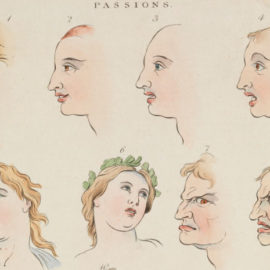

This article is an excerpt from the Shortform book guide to "The Language Instinct" by Steven Pinker. Shortform has the world's best summaries and analyses of books you should be reading.
Like this article? Sign up for a free trial here.
How do children acquire language? At what point do our language acquisition skills diminish?
Steven Pinker believes that human language is biologically innate. His theory provides a key insight into the field of linguistics. It explains why children have the ability to rapidly acquire language.
Keep reading to discover why children are linguistic geniuses.
How Children Acquire Language
How do children acquire language so quickly? By the time children are two or three years old, they can often speak in fully grammatical sentences. Pinker emphasizes the magnitude of this feat—especially children’s ability to memorize the meanings of words and apply them in novel sentence structures according to internalized rules. He asserts that children produce language with the help of innate language skills, like recognizing patterns in syntax, and not just by mimicking exactly what they’ve heard before. Children also expand their vocabulary exponentially, learning an average of one new word every two hours through their adolescence.
(Shortform note: Critics of Pinker argue for an alternative understanding of why children acquire language quickly: the usage-based approach. Proponents of this theory argue that children acquire language through exposure and by using multifunctional cognitive tools. For example, they hear people around them saying things like, “Where is the dog?” and they learn by analogy and inference that they can insert different words into that structure. The key distinction between the biologically innate framework and the usage-based framework is that the latter doesn’t rely on language-specific cognitive mechanisms, like having a genetically encoded ability to recognize universal grammar structures.)
Pinker also writes that our language acquisition skills diminish significantly after puberty. The timeframe before puberty is called the critical period for learning. The general idea of a critical period applies to different scenarios in which an organism must acquire a specific skill within a certain time period. Otherwise, it will never properly develop. For example, zebra finches have to learn from other birds how to produce a mating song within 65 days of hatching.
Pinker suggests that humans have a critical period for language acquisition because children benefit from learning their community’s language as soon as possible: If they can understand language, they’re more likely to heed warnings of danger, like “don’t go near that animal.” So for children, it’s important to learn a language quickly, but once they’re competent at it, their body allocates less energy to the parts of the brain responsible for language acquisition. According to Pinker, this explains why children can easily learn multiple languages while adults who try to learn a new language often struggle to overcome an accent or fully master the grammar.
(Shortform note: The researcher Eric Lenneberg popularized the concept of the critical period for language acquisition in the 1960s, and it’s still a widely accepted theory in linguistics that’s supported by many case studies. However, some researchers disagree on the age cutoff when people will no longer be able to achieve native-like fluency in a new language. Some argue that it’s as young as four years old while others suggest that the cutoff is closer to 10 years old. For a child’s first language acquisition, one study shows that the first year of an infant’s life is part of the critical period for language development.)

———End of Preview———
Like what you just read? Read the rest of the world's best book summary and analysis of Steven Pinker's "The Language Instinct" at Shortform.
Here's what you'll find in our full The Language Instinct summary:
- How language is an innate ability—not an element of culture
- A look at unique qualities of human language
- How slang enhances a language, rather than diminishing it







Sir i request to give your opinion regarding the importance of learning mother tongue for a child in India. Whether child first learns mother tongue or English as the later is the universal language.
Please refer to any book you have already written on the same issue.